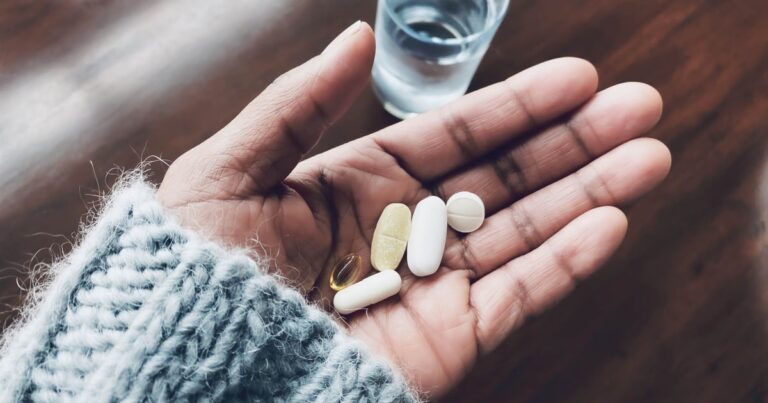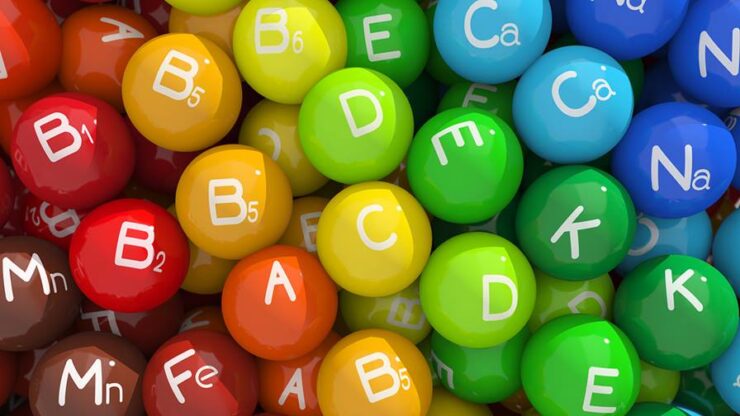Are you raising a teenage boy? If so, making sure he’s getting the right amount of nutrients is important for his health. And if he’s like most growing boys, he’ll probably need more than one multivitamin per day to get what he needs.
About Vitamins for Teen Boys
Most teenage boys are growing quickly, putting on muscle mass and developing maturation of their bones. That takes a lot of energy, which means they need vitamins daily to keep up with the body’s demands.
There are some teenage boys who may not be able to drink milk or eat dairy products, so it is even more important for them to take a vitamin that contains calcium and other essential nutrients in order to support bone development.
According to Mayo Clinic nutrition specialist Sharon Zarabi, M.S., R.D., “If you’re giving your son only one multivitamin per day, he probably isn’t getting enough calcium.”
But can teen boys take adult vitamins? And if not, which supplements should you look into instead?
Why Teen Boys Need More Nutrients Than You Think
For all their seeming toughness and bravado, teenage boys’ bodies are actually more susceptible to nutritional deficiencies than girls’, simply because they’re growing so fast. For example:
A 2003 study found that teenage vegetarian boys were at risk of low iron levels. However, there was no evidence suggesting that adult male vegetarians were at the same risk.
While vegetarian boys of all ages need to eat more iron than their meat-eating counterparts, older teenage males should consider eating meat or taking supplements to meet needs.
Teenage girls may be less likely than their male peers to develop anemia during growth spurts because they lose blood every month. However, adult women do not experience this drop in RBCs and can thus continue menstruating with no ill effects.
There is also evidence that suggests teen boys are more likely to have below-normal levels of vitamin D compared with teen girls. Low levels of vitamin D are associated with osteoporosis in adults, but bone loss begins around 30 to 35 years old.
Teenage boys may also have low levels of other vitamins, such as vitamin C, though the evidence for this is less conclusive than for iron and vitamin D deficiency. However, it’s harder to see if a teen boy isn’t eating well because he prefers junk food or doesn’t like vegetables.
Even if your son eats everything you put in front of him, his growing body probably has different nutritional needs from yours. And one multivitamin won’t be enough to meet those needs throughout puberty.
Now that you know why supplementing with adult vitamins isn’t enough, let’s look at which supplements are appropriate for teenage guys.
Do Teen Boys Need Adult Vitamins? The Bottom Line
If you’re raising a teenage boy, you’ll want to make sure he’s getting the nutrients he needs to support his growth.
No matter how much your son likes his veggies, not eating well could mean that he has low levels of various vitamins. And it might be even harder for him to get all the necessary nutrients in his diet.
Teenage boys are at an increased risk for many deficiency-related conditions compared to girls and adult men because they’re growing so rapidly.
If your teen isn’t eating well or if the doctor recommends supplements, ask about options that are specially formulated for males. You can also talk with a pediatrician or general practitioner about vitamin D and iron supplements specifically formulated for teens.
Now you know whether teen boys need adult vitamins and which type of supplements might be right for your son.
What are the most important vitamins?
The most important vitamins are usually the ones that are commonly lacking in American diets.
Vitamin D is important for healthy bones. It’s also correlated with a decreased risk of autoimmune disorders. Vitamin D deficiency can lead to rickets, which causes bone pain, muscle weakness, and an increased risk of fractures.
Vitamin C is necessary for building healthy connective tissues, blood vessels, ligaments, tendons, and helping your body heal wounds. Lack of sufficient vitamin C may increase one’s risk of high blood pressure.
Iron carries oxygen throughout our bodies via red blood cells. Iron deficiency anemia means the body doesn’t have enough iron to carry oxygen around as it should — this makes us feel weak or tired.
Calcium is a mineral important to bone growth. As we get older, our bones lose calcium, and having enough while growing can help prevent fractures or osteoporosis later in life.
Zinc is another mineral that aids in fighting off infection and activating certain enzymes. Zinc deficiency may lead to reduced immune function, loss of appetite, slow growth, impaired wound healing, hair loss, diarrhea, depressed mood, night blindness, and a weakened sense of taste.
Many teenage boys could benefit from taking a quality multivitamin because they have an increased risk for nutritional deficiencies compared to teen girls and adult men.
If you’re not sure which supplements are right for your son’s age group, talk with a doctor about the best options. Keep reading to find out about some popular supplements for teen boys.
What are the most common vitamins?
The following aren’t as commonly deficient as calcium, iron, and Vitamin D, but they’re still important and nearly all of us don’t get enough.
Niacin helps the body use fats and carbohydrates to create energy. Niacin deficiency can lead to weakness, skin problems, stomach upset, diarrhea, depression, insomnia, nerve damage.
Folate is a B vitamin that reduces the risk of cardiovascular disease as well as birth defects in developing embryos. It may also help reduce symptoms of depression in people with poor nutritional habits.
Folate deficiency has been linked to various cancer, especially colorectal and cervical.
So all in all, yes vitamins are good for boys over 13 years and adult ones are okay to use.



